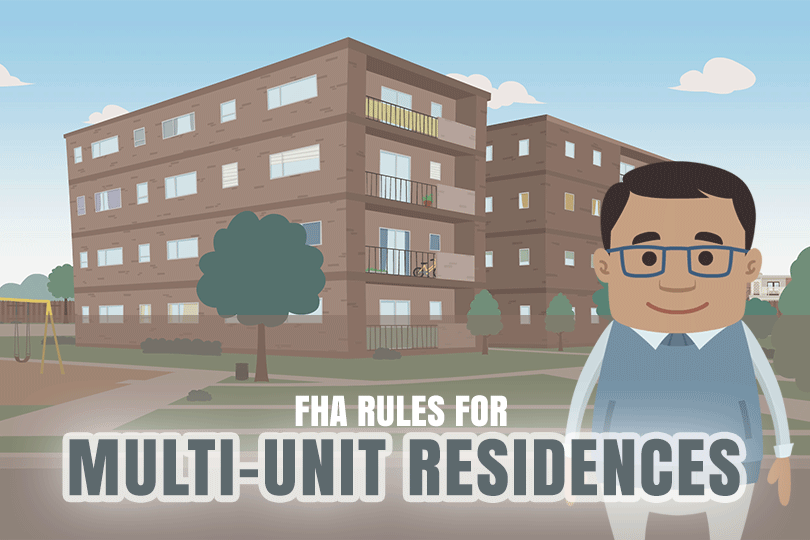FHA Home Loans for Multi-Unit Properties
July 21, 2023
FHA Multi-Unit Property Loans, often referred to as FHA multifamily loans or FHA 2-4 unit loans, are mortgage options specifically designed for individuals who want to purchase multi-unit properties. These loans are insured by the Federal Housing Administration, which means that lenders are more willing to approve applicants with lower credit scores and provide more favorable terms compared to conventional loans.
Qualifying for an FHA Multi-Unit Property Loan
- Credit Score
Although FHA loans are more forgiving of lower credit scores, having a credit score of at least 580 will help you secure a lower down payment (3.5%). However, a score below 580 may still qualify, but with a higher down payment requirement (10%). - Debt-to-Income Ratio
Your debt-to-income ratio should be within acceptable limits, generally around 43%. This means your monthly debt payments (including your mortgage) should not exceed 43% of your monthly income. - Property Requirements
The property you intend to purchase must meet FHA guidelines. It should be in good condition and meet certain safety and habitability standards. - Occupancy
You must occupy it as your primary residence within 60 days of closing the loan and continue to live there for at least one year. - Financial Documentation
Be prepared to provide documentation of your income, employment history, and assets to demonstrate your ability to repay the loan.
------------------------------
RELATED VIDEOS:
Disclosures Give Transparency to Borrowers
Understanding the Purpose of Your Mortgage Down Payment
Putting Money Into Your Escrow Account

FHA Loan Articles
May 14, 2025When you buy a home with an FHA mortgage, you must pay for both mortgage insurance and insurance to protect your property while paying on the loan. There are important nuances to these insurance policies to know before you start. What's the difference between insurance against water damage and flood insurance? That's just one example of the "hidden" expenses of buying your new home to budget for.
May 13, 2025Buying a home with an FHA mortgage means you'll need to know the FHA guidelines about the types of properties you can purchase with an FHA single-family home loan for residential purposes. How well do you understand these rules? Are you truly ready to start house hunting? We examine some key aspects of the process.
May 12, 2025FHA single-family home loans require a minimum 3.5% down payment for typical transactions. Saving for this requires planning and dedication, but it’s not impossible to save enough to make the down payment. How do people typically budget and save for this? Your financial needs and goals will play a big role in how much you decide to set aside for your new home, but here are some options to think about...
April 30, 2025 In a previous post, we discussed why FHA borrowers should carefully consider whether paying for discount points truly serves their best interests, focusing on factors like short-term homeownership, opportunity cost, FHA mortgage insurance, and the prevailing interest rate environment. Discount points are an option for borrowers willing to pay a fee to lower the interest rate by a set amount. This is not right for all borrowers, and you don't want to pay for points you won't benefit from during the loan term.
April 29, 2025Are you considering buying a home with an FHA loan? You'll likely talk to your participating lender about FHA loan "discount points" – fees you pay upfront for a lower interest rate on your mortgage. The idea behind discount points is a straightforward exchange: you spend money today to reduce your interest rate. Typically, one point equals one percent of your total FHA loan. In return, your interest rate might decrease by an amount you and the lender agree upon.







